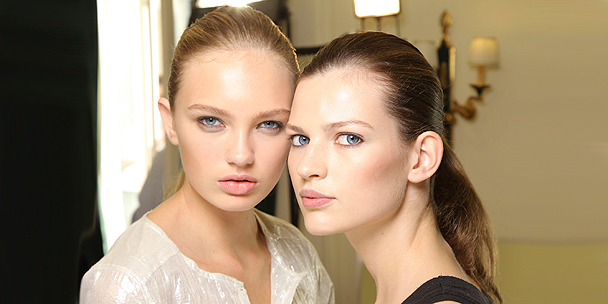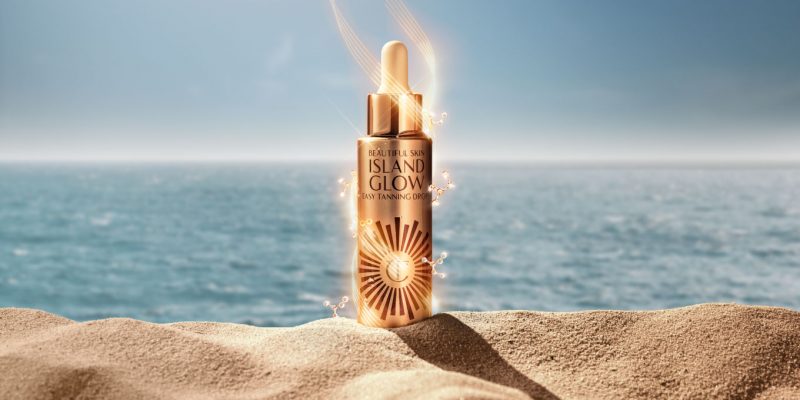Beauty
Skin care essentials: Antioxidants
Why are antioxidants so powerful when it comes to keeping your skin young and healthy? Our expert explains the benefits.
by : Jessica Padykula- Feb 7th, 2012

Cindy Crawford is 45, so is Halle Berry. Michelle Pfeiffer and Madonna are both sitting pretty at 53. Ellen Degeneres fronts Cover Girl and she’s 54. With more and more seemingly ageless celebrities gracing magazine covers and movie screens, there is even more pressure to find the ultimate anti aging skin care routine. While the average person has to live without the bevy of beauty products, supplements and skin smoothing secrets of Hollywood’s elite, there are some ingredients in the anti aging skin care spotlight aimed at keeping complexions healthy and glowing.
Increasingly, antioxidants are being touted as an anti aging cure-all. In particular they are continually being lauded as a
must-have ingredient for younger looking skin. “Research has shown that topically-applied antioxidants have multiple benefits for skin,” says Dr. Paul M. Friedman, dermatologist and director of The Dermatology & Laser Surgery Center in Houston, Texas. He shared some insight into why this particular skin saving ingredient gets so much attention.
Skin care tip: Antioxidants and free radicals
Antioxidants are substances known to protect cells from the damage caused by free radicals, molecules that cause damage to the skin at a cellular level. The main causes of free-radical damage on skin include sunlight, pollution, cigarette smoke and even the air we breathe, Friedman says. “Antioxidants reduce inflammation, repair DNA damage, restore the skin´s surface barrier, help defend against environmental stress, allow skin to build more collagen and improve skin´s ability to heal,” he explains. “Antioxidants also effectively help fight sun damage.”
Skin care tip: Antioxidants and skin health
There are hundreds of antioxidants, which include water soluble and oil soluble antioxidants. Water soluble varieties include vitamin C and glutathione. Oil soluble include vitamin A, vitamin E and CoQ10, explains Friedman. “It has been clinically proven that the best combination of antioxidants include using a combination of water and oil soluble antioxidants. Some antioxidants are all-around free radical scavengers while others work better to regenerate substances in skin that work to defend it from oxidative damage and inflammation,” he says. When it comes to products containing antioxidants, be mindful on packing, the dermatologist warns. Antioxidants cosmetics can deteriorate if they are repeatedly exposed to air and sunlight so look for
creams or lotions packaged in opaque tubes or bottles.
More antioxidants that help with anti aging on the next page …

Skin care tip: Antioxidants and sun damage
Sunlight increases inflammation caused by free radicals, which can damage DNA and ultimately lead to collagen destruction (think fine lines and wrinkles) and skin cancer. Your skin saviors? Vitamins C and E. “Vitamin C scavenges free radicals and also plays an important role in collagen syntheses. Vitamin E combats skin ageing and recent studies show that vitamin E inhibits inflammation,” Friedman says. Used in combination these two powerhouse antioxidants increase collagen formation and help with the improvement of photodamage (sun damaged skin), he says. “In addition, clinical studies have shown that vitamins C and E provide significant protection against short-term and long-term UV induced skin damage.”
Skin care tip: Food sources for antioxidants
Whether you eat antioxidants or put them on your skin they are vital to your health, Friedman says. “When applied topically or eaten, antioxidants do the job of reducing environmental damage whether it is from the sun, pollution, or just the very air we breathe,” he explains. “No one food or food group should be your sole focus. It’s best to include a wide variety of foods as part of a healthy, well-balanced diet.” Some of the better sources of antioxidants include the following.
Fruits: Many apple varieties (with peel), avocados, cherries, green and red pears, fresh or dried plums, pineapple and kiwi.
Vegetables: Rich sources of antioxidants include artichokes, spinach, red cabbage, red and white potatoes (with peel), sweet potatoes and broccoli.
Berries: Blueberries, blackberries, raspberries, strawberries and cranberries.
Nuts: Snack on walnuts, pistachios, pecans, hazelnuts and almonds for their antioxidant content.
Herbs: Add flavour to your food and benefit from antioxidants by using ground cloves, cinnamon, ginger, dried oregano and turmeric.
Beans: Opt for small red beans and kidney, pinto and black beans.
Beverages: Green tea might one of the most well known sources of antioxidants but other beverages with high levels include coffee, red wine and pomegranate juice.
Read more:
The best exfoliators and scrubs
The best winter face moisturizers
Au naturel: 5 organic beauty products we love
Test out the latest celebrity hair styles and beauty looks with our Virtual Makeover Tool!
Newsletter
Join our mailing list for the latest and biggest in fashion trends, beauty, culture and celebrity.
Read Next

Fashion
H&M's Latest Designer Collab With Rokh Just Dropped (And It's So Good)
We chatted with the emerging designer about the collaboration, his favourite pieces and more.
by : Melissa Fejtek- Apr 18th, 2024

Culture
5 Toronto Restaurants to Celebrate Mother’s Day
Treat your mom right with a meal at any of these amazing restaurants.
by : Rebecca Gao- Apr 18th, 2024

Beauty
Tested and Approved: Your New Hydrating Skincare BFF
This new product has all of your skin’s thirst-quenching needs covered.
by : ELLE Canada- Apr 17th, 2024




